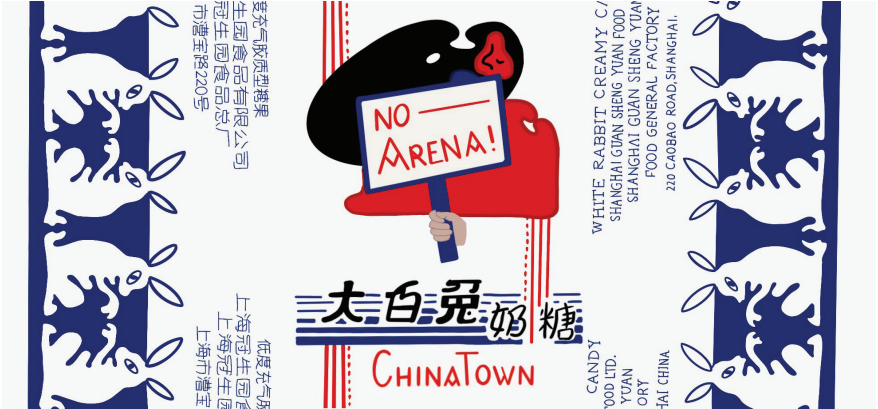By George Zhang, Photography Editor
Gentrification, which Merriam-Webster defines as a poor area experiencing an influx of middle-class or wealthy people rebuilding homes and businesses, often results in an increase of property values and the displacement of former residents. This is currently a key issue of an ongoing battle in Chinatown…yet again.
In 2022, the Philadelphia 76ers unveiled an ambitious plan to build a new stadium for fans. Located between 10th and 11th Streets on Market Street and dubbed 76ers Place, the privately funded $1.3 billion establishment will hold up to 18,500 spectators and is slated to open its doors in 2031. Less than a block away sit the century-old homes and businesses of Chinatown, an ethnic community that is at risk of extinction. This predatory development needs to end.
76ers Place would be detrimental to the everyday lives of residents. According to the Centers of Disease Control and Prevention, gentrification can lead to public health disadvantages caused by greater socioeconomic inequality, increased living costs and the exposure of vulnerable populations to hazardous construction materials such as lead paint.
76 Devcorp, the arena’s construction firm, has voiced in their inclusivity statement that they want to “form a long-term partnership with the community” and “collaborate to address local priorities.” In reality, this is not the case as the firm has mostly discussed them during closed-door meetings. The Philadelphia Inquirer reported that attorneys of the firm tried unsuccessfully to sneak a clause into an unrelated parking garage bill that would have fast-tracked the arena’s construction by requiring the garage owners to consent to future demolition to clear space for the arena, showing that these promises are nothing but empty rhetoric.
This is not the first case of predatory developments in Chinatown. In the past 20 years, residents successfully blocked the constructions of a baseball stadium, casino and even a federal prison. Unfortunately, similar communities across the nation have not been as successful, as seen with the construction of the Capital One Arena in Washington D.C. Chinatown, causing a community of 3,000 people to dwindle to just 300, according to the Washington Post.
The solution is simple: don’t build a stadium at all. What good would a new arena even serve? For chairman of the arena development corporation David Adelman, the answer is to encourage more customers to visit restaurants and stores in Chinatown. However, what Adelman doesn’t understand is that Chinatown isn’t a tourist attraction — it’s a cultural haven with a fragile and rich history.
What started out as a single laundromat blossomed into a vibrant community protected from prejudice and hate. However, the fate of this community now rests in the hands of activists stopping at no end to champion this cause and spread awareness. Playing my part, I also echo the same seven words as my brothers and sisters.
There must be no arena in Chinatown.
George Zhang can be reached at [email protected].






















































































